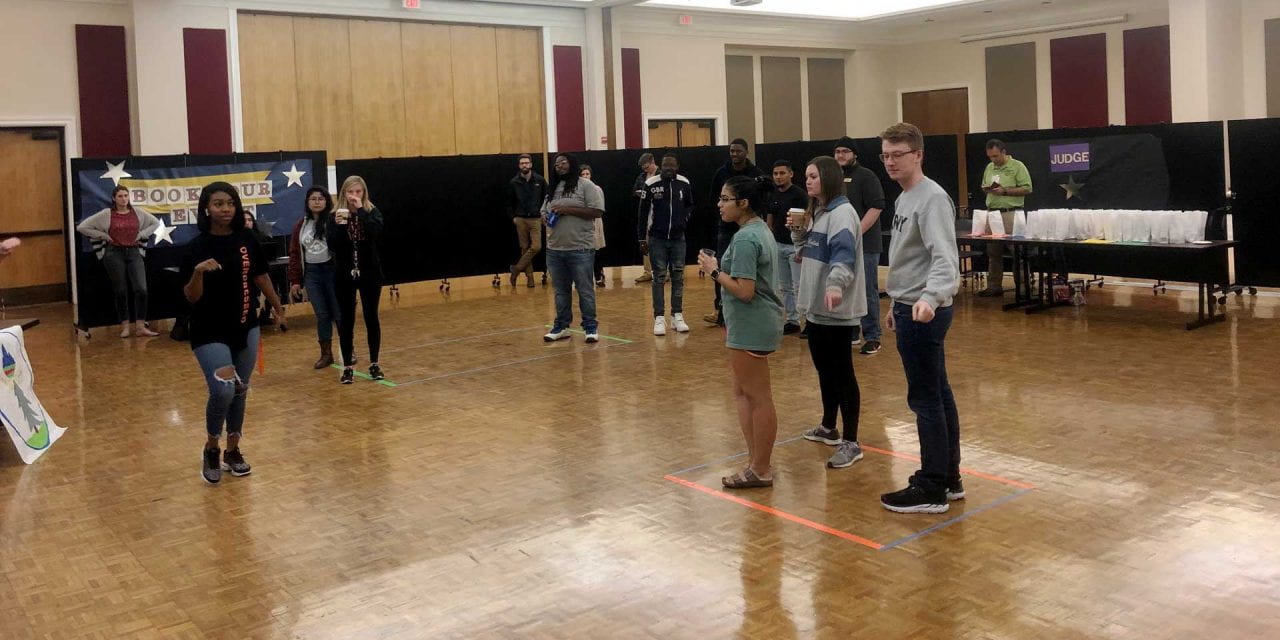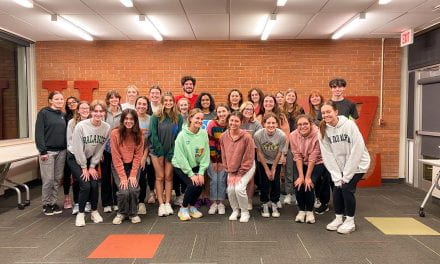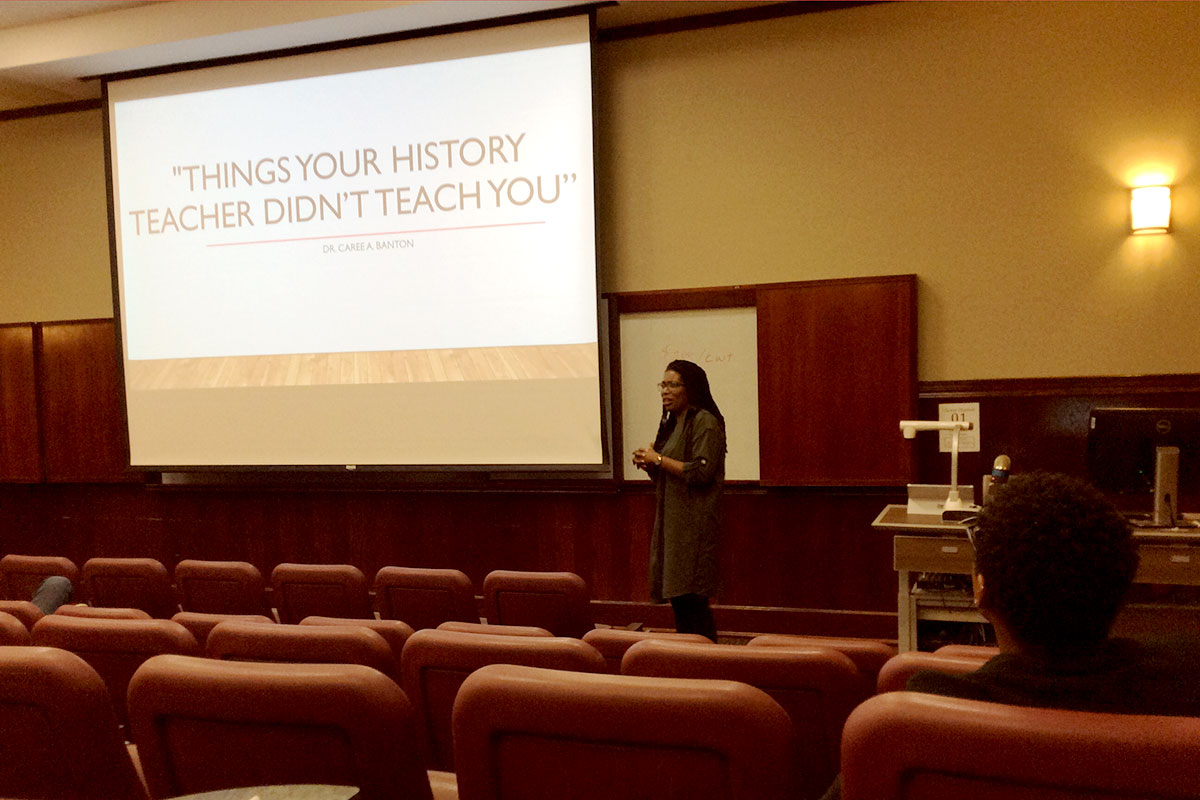Pictured above: Embody the Belief organizers randomly divided participants into groups by color. Each group tried to get a marriage license in a fictional city and were treated differently in an effort to show how some religious groups experience access to services differently due to privilege and prejudice.
Embody the Belief is an @Home event in which participants are assigned to one of five groups according to a colored sticker and asked to perform a series of tasks. I was a member of the red group.
The event began with each participant getting together with their group. The “mayor” of the city then explained that each group’s goal was to plan a wedding the mayor would be willing to attend. To do this, groups had to get food from the grocery store, receive a marriage license from the judge and book a venue.
Getting a Marriage License
My group decided to go to the grocery store first. After about two minutes, it became clear that we were being treated rather poorly by the employee.
When we said we wanted certain foods or alcohol, she asked, “Are you sure you can have that?” and questioned if we were going to be able to pay for everything.
Then, the yellow group entered the store, and the employee turned her attention to them and forced us to wait until they were finished. Of course, we complained about this, saying it was not fair, and so the “sheriff” came over and kicked us out for loitering!
It became clear to us that other groups were receiving preferential treatment. When we tried to book a venue for the wedding, the employee asked us to look at locations in the next city over or suggested the YMCA.
When we tried to get our marriage license, the judge made us lower us guest list from 50 to 25, and then asked for all our guests’ social security numbers. The mayor told us she would attend our wedding but only with a security detail.
Because I knew that each color group represented a religious belief, I had a pretty good guess of what red represented.
After the simulation was over, participants placed a sticker on one of five posters with an emotion that best described how they were feeling. I put my sticker under “discouraged.”
Processing the Process
The purpose of this exercise was to show how “certain religious face discrimination just trying to do everyday tasks,” said Hannah Brady, a community development assistant (CDA) who helped organize Embody the Belief.
After the simulation, there was a debrief in which Andrea Allen, a Division of Student affairs professional, led a discussion about privilege.
The exercise put students in the “other” position to understand what it might feel like to be treated differently because of your religious affiliation. She stressed that having privilege does not make you a bad person. It’s just important to recognize that some people don’t have that privilege, Allen said.
She then asked about participants’ reactions to the simulation.
Being discriminated against, even when you know it is part of a simulation, triggers an emotion in you that makes you feel frustrated and hopeless, one student said.
Finally, Allen told us what each color represented. The five groups were Christians, Jews, Muslims, Hindus and atheists. My group represented Muslims. Each group was able to reflect back on peoples’ reactions to them during the simulation and identify the stereotypes of their religion that led people to behave this way.
After the debrief, participants were again asked to place a sticker on one of five posters with what they were feelings. I placed my sticker under “hopefulness.”
This is an event that is supposed to take you out of your comfort shell and reflect on the experiences of others. Obviously it does not feel particularly good to face that stark level of discrimination, but it is important to recognize your own privilege and use it to advocate for those who may lack it.
Embody the Belief happened Tuesday, Nov. 19 in the Verizon Ballroom at the Arkansas Union.








Recent Comments